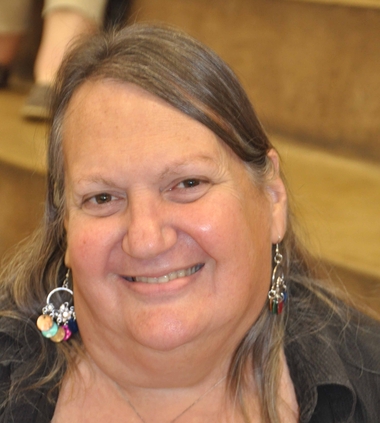Kansas woman sues state for refusing her an accurate birth certificate

By Rob Howard
Associate Editor
Transgender activist Stephanie Mott submitted a request for an amended birth certificate to the Kansas Department of Health and Environment (KDHE) on December 14, 2015. KDHE denied that request in a letter dated January 22, 2016.
Mott told The Gayly she wasn’t surprised. “It would have been hard to imagine that Kansas would respond in a way that would be sensitive to transgender people. I thought, okay, we’re going to go ahead to the next step.” She added, “My attorneys are determined to put an end to this miscarriage of justice.”
Transgender Law Center and co-counsel announced today that they have now filed a petition in state court to challenge that denial. The petition argues that the Department’s policy violates Kansas state law by failing to comply with a valid regulation. It also argues that denying transgender people amended birth certificates violates the constitutional right to equal protection and right to privacy—the ability to decide when and to whom to disclose one’s transgender status.
Stephanie Mott is a transgender and LGBTQ activist, an author and founder of both the Kansas Statewide Transgender Education Project and the Transgender Faith Tour. She is a member of the Topeka Human Relations Commission and is board president of the Capitol City Equality Center in Topeka. She is a regular columnist on the Huffington Post.
“One of the first things I ever knew about myself is that I’m a girl, but to this day, the state of Kansas refuses to update my birth certificate to reflect who I truly am,” said Mott, a 58-year-old woman and social work student at Washburn University in Topeka, Kansas.
“It’s so important for me that my birth certificate reflect my authentic self. Having accurate identity documents is not only a matter of human dignity but also an issue of safety. I shouldn’t have to out myself as transgender every time I apply for a job or when I register to vote.”
Mott emphasized the safety aspect of having the correct document. She pointed out statistics that show the danger of having documents that are in conflict regarding gender, or between documents and how a person presents themselves. “In cases like that, 28 percent of transgender people experience harassment, 15 percent are denied service, and in three percent of the cases they experience violence.”
Kansas long had a regulation in place that permitted transgender people to change the gender marker on birth certificates. The Kansas Department of Health and Environment, which oversees birth certificates in the state, regularly updated birth certificates for transgender Kansans for years if they had gender confirmation surgery.
Mott explained the term ‘gender confirmation surgery.’ “The common term we hear is sex reassignment surgery. It’s technically correct, but it’s genital surgery. The new term includes any surgery that is needed to affirm the person’s gender, and doesn’t deal just with genitals.”
Shortly after Governor Sam Brownback took office in 2012, and without repealing or officially altering the regulation, the Department suddenly adopted an internal policy of refusing to follow the regulation and denying all birth certificate amendment requests from transgender people.
“Everyone needs access to identity documents that reflect who we really are,” said Ilona Turner, Legal Director of Transgender Law Center. “The state’s brand-new policy of refusing to allow transgender people to update the gender marker on their birth certificates is patently unlawful and unconstitutional. This policy is an extreme outlier – every state except Kansas, Idaho, and Tennessee will give transgender people new birth certificates that correctly state their gender.”
In fact, Kansas itself allows transgender people to update the gender marker on their driver’s licenses. “This [Health Department] policy serves no purpose other than to discriminate,” said Turner.
“It took me 48 years of struggle to embrace my authentic self and start living as the woman I’ve always known I am,” added Mott. “I just want my government to respect who I am and stop trying to make me live as someone I’m not.”
Mott praised the legal team assembled to present her case. “It feels good to know I have these amazing people supporting me in this effort. They’re in it because they want to see the right thing happen.”
In addition to the litigation, Mott has a full plate. She is finishing her work for a Master of Social Work. In November, she was considered as a replacement for a state representative who had resigned, and although she was not selected, she won’t rule out running for the post in the future.
After not being selected, Mott wrote in her Huffington Post column, “Perhaps the most important thing I set out to do was to give a few young people, who happen to be transgender, some hope that they could live authentically and make it in this world.
“I'm thinking that we -- me and all the other marginalized people who stand up and claim our dignity -- are making a difference. The door has been opened. It can never be closed again. Speaking loudly and clearly I say to you, You can more than make it in this world. You can make this world a place where we don't have to wonder if we can live authentically.”
She told The Gayly that her future actions will be based on “the right thing to do for the LGBT movement. If that turns out to be running for office, I’ll run for office. If it is continuing transgender education, I’ll do that.”
One thing is certain, you’ll be hearing a lot of good things that Stephanie Mott does for the transgender and LGBTQ communities. She is an inspiration to marginalized people everywhere.
The Gayly – February 25, 2016 @ 5 p.m.





